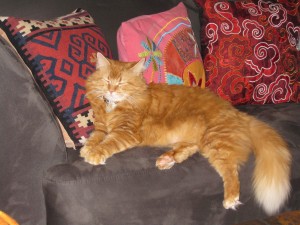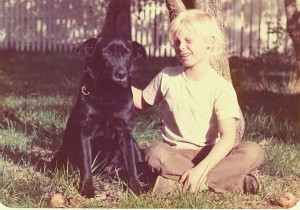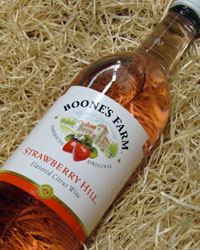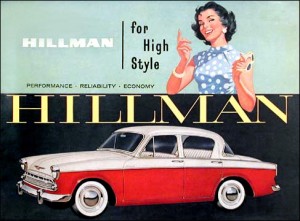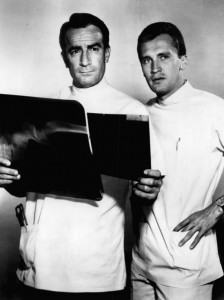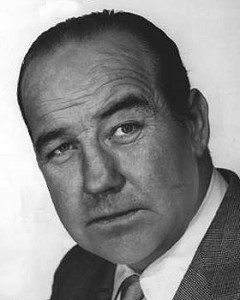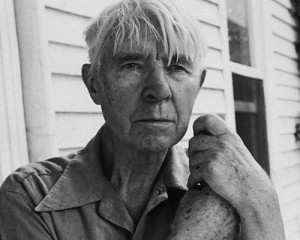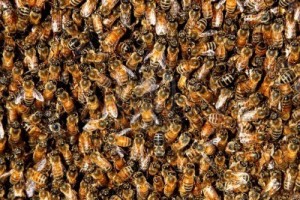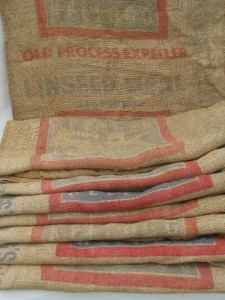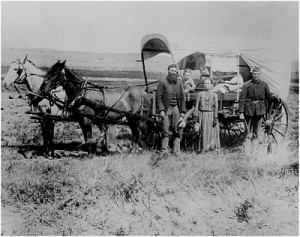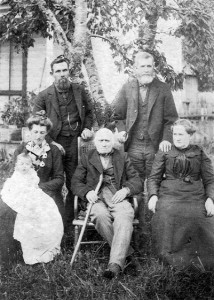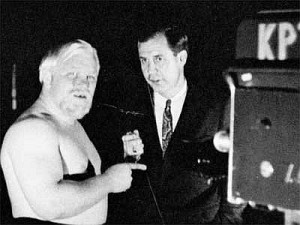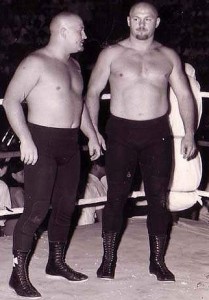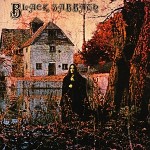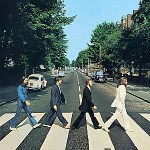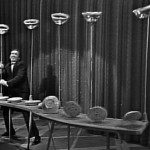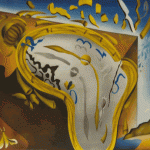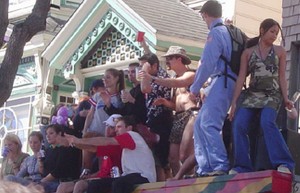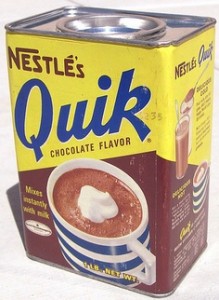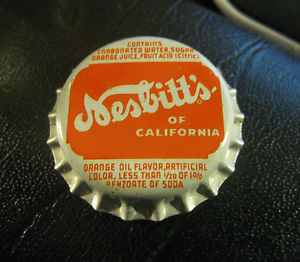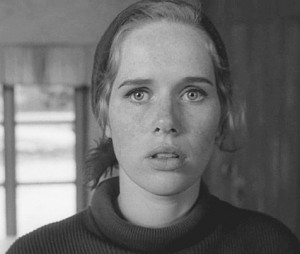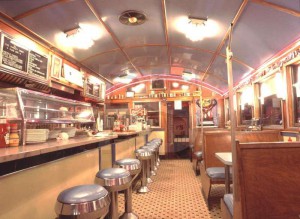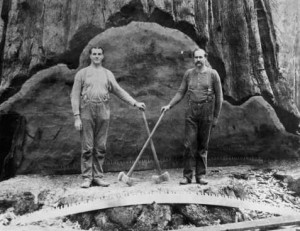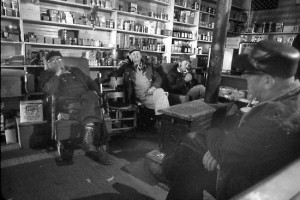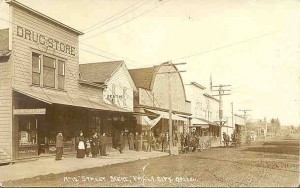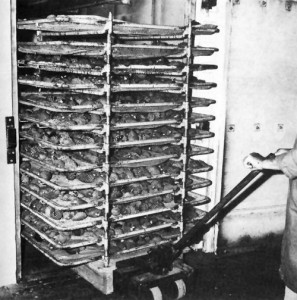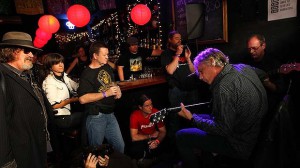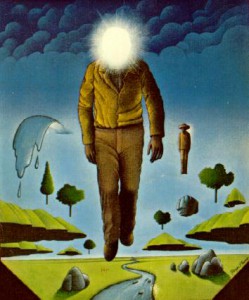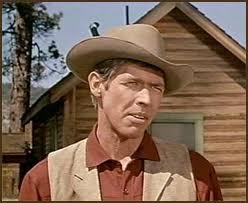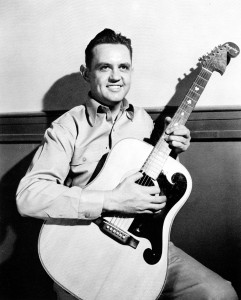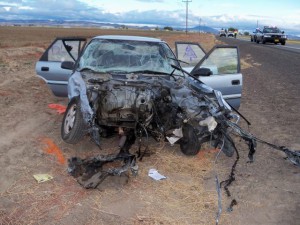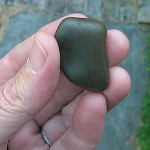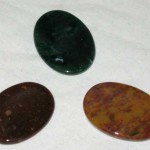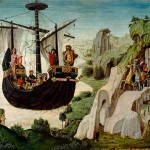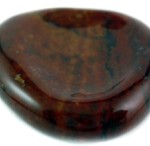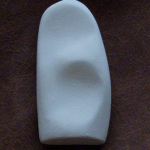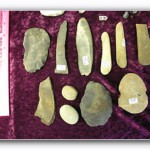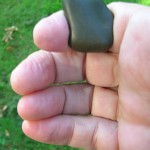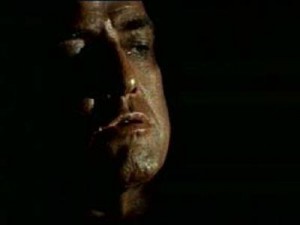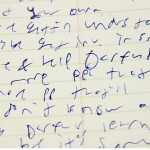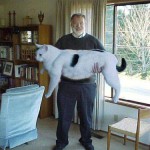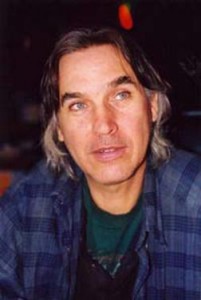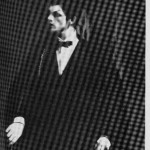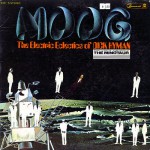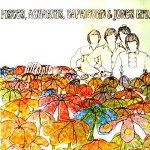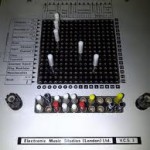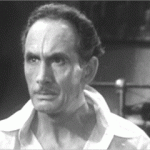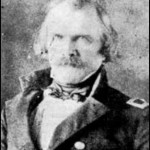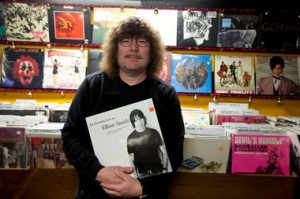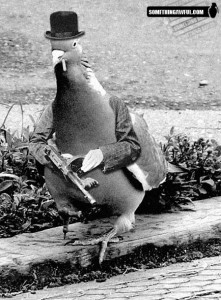Not yet to the age of emancipation from my father’s wallet, I went back home to Milwaukie about a week after finals completing my sophomore year at OCE. Fred and Varney resolved to remain in the L-Shaped house for the summer. Jacki offered to cut the rent in half, as Monmouth emptied of any potential tenants after June fifteenth anyway—better to make something from the immense space during those months than to have it sit empty. Besides we had been easier to work with than most of her renters. I believe it fell to Fred to tell her that the rider lawnmower “quit working.”
Fred was our official Jacki emissary, as he had an inexplicable, winning charm with females of all ages—possibly because he radiated East Coast self-confidence, an earnest directness, uncommon to the region. Many males in town found his temperament too aggressive and felt threatened by him. But women didn’t sense Fred to be the least bit dangerous. They loved his engaging candor and sense of humor. He was harmless.
With Fred and Varney securely holding down the fort, Tom, Doug and I felt safe in returning to our respective homesteads in the outside world. The boys headed back to Bend—Doug back to Don the optometrist and loyal wife and mother Marilyn. Don and Marilyn generally frowned on Doug’s activities, whatever they were, as they frowned on their other four boys’ activities, and daughter Denise’s activities, and the activities of a large part of the population of the City of Bend.
Tom went home to Chuck and Evelyn and younger brother Chuck Junior, and the pale blue split-level over near Pilot Butte. I don’t remember what line of work Chuck was in, maybe something timber related. But he was a real square, upright guy—perhaps somewhat bewildered that his son and all the boy’s friends looked like damn hippies—but tolerant. I think the Schiffers were always a bit relieved that Chuck Junior had turned out all right.
Gypsy and I returned to my childhood home, the cheery, butter yellow, two-story abode on Firwood. And again the entire family was reunited: my parents, two brothers and sister. Gypsy added to the household animal population, which consisted of Yeller the canine patriarch, his young son Earl and their distant cousin the puffy, tufted orange incongruity that was known to be Wally. Wally was a cat of very insistent habits, several of which grew to be quite annoying, none of which I will enumerate here—sparing us all a needless ordeal.
Among his abundant peculiar behaviors—when outdoors in winter Wally liked to curl up under the hood of the cars in our driveway, especially if one had been recently driven. However that was not a prerequisite. He found such spaces to be adequate shelter from the elements under most conditions. It was dry and out of the wind. But he was still available, in case any of the other cats in the neighborhood wanted to conference with him. Even though he’d been fixed, he was a known playa.
Late for work one morning, my father dashed from the house to his prized Impala in an abrupt rush. He no sooner turned the engine over than orange fur began to fluffily float all over everywhere. Something of a home mechanic, Dad immediately recognized that to be quite an unusual condition for his car and shut it right off.
Eventually Wally wandered out from under the car, dazed, a bit close-cropped in places, but otherwise none the worse for wear. As cats go, he wasn’t particularly stupid, though it must be said that Wally did not learn from that incident, but continued with his practice—and thus was occasionally wounded in a similar fashion—never critically. He seemed to know enough to stay the hell away from the blades, belts and pulleys. So after a rude shearing he was always good to go—even though to see his fur flying around when trying to start the car was oftentimes quite a jarring experience for the operator.
Gypsy soon fell in with the pack and my family accepted her readily. She was a good dog and rarely barked. The same cannot be said of Yeller and Earl.
Earl, especially, being a Golden Cock-a-Poo-Terr-Retriever, had quite a chip on his dewlap. It was because of his size, I think. Earl wasn’t nearly as sincere as, say, Rinnie. Earl didn’t much give a shit what you thought. Still, he wasn’t as indiscriminate as Wally. Wally lived on the edge.
Soon after my return, I reconnected yet again with Evie Neville—with whom I had an on-again, (mostly) off-again relationship. She had just graduated from high school and was anxious to strike out on her own, though in which direction and as to how such a thing would be accomplished had yet to suggest itself to her. Still she brimmed with ambitious confidence essential for a pretty young woman who thought maybe being a model might be fun.
She was tall and slender, with pale, dollar-green eyes and fine, long, light blond hair—so she certainly looked the part. By that point in the career of her life Evie had taken to wearing all black, all the time. Black, silk, long-sleeved blouse—or, for more informal occasions, a black leotard. Black silk maxi skirt and knee-high black leather boots. Her fashion ambulance bore no casual attires, nor a radiator of anything but cool. It was truly amazing that she had managed to achieve her own quite distinctive style among a sea of maroon and gold cheerleaders (such as herself). She played it both ways as no other girl could.
Most of three summers worth of chronicles involving Evie are in another of my “fictional” third person accounts of those real events. At some point I will probably link that up here. But it is a somewhat long read and would be a distraction to these particular stories. However, within those pages is the parable of the liberation of Jesus from the Humane Society pound on Columbia Boulevard in north Portland.
What’s not in there is how I eventually ended up with Jesus down at the L-Shaped house on the S-Curve the first week Jeff and I moved in that previous fall, nor how Evie absconded with him one night, about a month later, while I was away from the house—leaving no note of explanation.
If not for William’s account of the mysterious appearance of some shadowy woman all in black, evincing an air of confident certainty, coming to take Jesus (who apparently offered no resistance whatsoever, the bastard!) away, I might not have ever known what happened to him. I never found out where Evie took him—she couldn’t keep him at her family’s house, so who knows? She never once spoke of that dog again, nor would she allow me to bring him up in her presence. She would always awkwardly change the subject, sometimes ridiculously.
I’m not at all clear as to why I unfailingly let her off the hook for that sort of behavior—a desire for approval, I suppose. Maybe the sense of intrigue she brought to any occasion. Her skilled unavailability. But, one thing I will say for Evie: she was consistent. And so was I, for that matter. She always took advantage of me and I always let her.
Once I had finally settled in back at home it became readily evident that I needed to get out there and start earning some money. My dad reinforced that to be something of an imperative. I believe he’d had his heart set on my being clear of the nest once I graduated from high school. So I was already two years behind schedule, hence a substantial mote in his vision of freedom from the shackles of familial encumbrance. He had been a father for twenty years, nearly half his life, and I think he was growing weary of the day-to-day requirements of such a position. He didn’t get a lot of time to himself.
So, off to work I went (half-heartedly). Perhaps thinking two half-hearts might make one fully operational component, Evie and I teamed up in our search for gainful employment. First stop: the fields of bountiful produce. We worked beans and raspberries. There wasn’t any bending over with those crops. Evie was concerned that her black wardrobe might be more easily soiled if she were forced to kneel in the dirt of a strawberry field.
After each morning of hard labor, we would purchase a pack of Kool menthol cigarettes and a bottle of Boone’s Farm Strawberry Hill wine as a reward for our efforts. It’s true. I had begun smoking and drinking—proof positive that marijuana is indeed a gateway drug. I never would have turned to alcohol and tobacco if I had been at all able to procure weed.
Though it was far inferior, smoking tobacco and drinking alcohol was the closest Evie and I could legally (well, neither of us was twenty-one, but Evie had fake ID and knew how to use it) come to reproducing the grass experience. I did grow a few plants in the flowerbeds in front of the house. However they yielded no material of real consequence. And I made a few trips down to Monmouth over the course of the summer and there picked up a lid when I could. But possession was sporadic, acquisition unreliable, at best.
It soon became too hot beneath the June day sun to be doing the field hand deal for very long. I nearly passed out one sweaty afternoon. Sitting in the car outside a Circle K where we bought it, Evie and I downed the better part of a bottle of Boone’s Farm, while chain smoking several menthol cigarettes. I thought I had sunstroke.
Part of the problem was that I had not learned how to properly smoke a cigarette (nor did I know how to properly consume alcohol in any moderation, for that matter) like most kids had in high school. Untrained in the art, I would suck down a major hit from one of those Kools like it was a joint, holding a lung full of smoke until my eyes rolled, lips went numb, and all became black and still.
We turned from berry and bean picking toward a professional career of sales—door-to-door—peddling some kind of discount coupon books of dubious value, whose participating merchants may or may not have been aware of their contributions to the promotion. The operation was being run by low wattage KUIK-AM, a radio station broadcasting out of Hillsboro, which supposedly lent an air of credibility to the campaign, although it was unclear as to why that might be.
In an effort to perhaps subtly encourage my permanent relocation, Dad had acquired a car from somewhere—I think from Uncle Norm (not really a relation, but so designated as part of a family custom). It was a 1959 Hillman Minx whose ability to run on a consistent basis far outweighed its boxy British plainness. It had that in spades. The only thing the Hillman really had going in its favor was that it was the precise vehicle that the Beatles used in the Bahamas chase scene in their film Help!. The one I had was two toned, white and salmon. As far as I know Ringo was never stashed in the trunk of that car. There was a dead cat back there once though.
The vehicle certainly did come in handy for transporting us to various locations at which to hawk our incredibly valuable bargain booklets, only ten dollars. Hundreds of dollars of savings. Buy one get one free at Tastee-Freeze. A free Rub-a-Dub carwash with oil change at Bernard’s Garage. Free wash with a perm at Della’s For Hair.
We were to receive a dollar for every book we sold. Our leads were generated by people who for some reason actually called in to the radio station in response to advertisements for the coupon books. It was a well-run operation for being utterly fly-by-night and more than likely a scam. In most cases potential customers were at least anticipating our arrival. If our client was a male, woe to he, as we’d turn Evie loose on him and she would close the sale typically within five minutes. As I have attempted to illustrate thus far, she did not take kindly to being told no. And she was incredibly gifted at ensuring that the situation rarely arose.
We generally generated sales of twenty booklets or more per day between us, the twenty dollar commission from which was not much—less than we were hauling down out in the fields. But Evie and I found it far more preferable to drive around smoking cigarettes with the windows rolled down and the radio blasting than to be standing out in a field somewhere sweating under the hot sun.
Each home we visited served as a portal into another world. Some of those places seemed vaguely familiar, resembling our own. But others were as incongruously divergent as black holes and rainbows. One particularly colorful black hole was Reverend Tom Phillips. He lived up on the side of Mount Tabor around Northeast 60th and Burnside—considerably outside our territory.
Our crew chief was a greasy little weasel named Vince, whom, with his bleach-blond girlfriend Randi, managed five or six of us “teams” from out of a stodgy motel room on McLoughlan Boulevard at the north end of Milwaukie. Vince told us we’d be doing him a really big favor if we’d take care of the guy. He promised he’d make it up to us big time if we’d cover the call.
We knew that was probably a load of hooey. Vince’s reputation among fellow teammates was low and falling fast. Some had taken to calling him Ratso when he was out of earshot, for his striking resemblance to Dustin Hoffman’s character in Midnight Cowboy—which had won an Academy Award earlier in the year. Vince’s ability to scrounge and cajole seemed quite comparable as well.
Reverend Tom Phillips was a crusty old barnacle, with a fusty, slicked-down gray comb-over and misshapen wire-rimmed glasses. He lived in a decent looking brick duplex in a good neighborhood and answered our knock at his door aswoon with rapturous expectation. Wearing a dingy white undershirt and worn brown slacks, as a prospect for a sale, he looked pretty dismal. He eagerly invited us into his home, where we discovered (too) many florid tapestries and paintings of naked people Adam and Eving in paradises of golden suns and blondness. Old Tom eyed Evie hungrily, as if she were a glazed ham.
As to the denomination of Reverend Tom’s fervency, one would suspect Church of Soft Biblical Porn—Old Testament. For before we could even begin to deliver our sales pitch about the fantastic savings our coupon books could provide the Reverend Tom for all of his gustatory and car care requirements, he launched into a hare-brained hallucinatory depiction of his version of Heaven.
From what we could gather, as he was (a little too) effusive on the subject, there’s a lot of sex in heaven. Everyone runs around naked with big boners and bouncing boobs, and the sun shines all day, every day—that’s important. It appeared, from the Reverend Tom’s description anyhow, that Heaven was being operated by junior high school boys.
At some point it dawned on me that, among other things, the Reverend Tom was also probably a bit of a multimedia artist, and had himself created the abundant art by which we were surrounded. I don’t think he got out much. And my guess is that his church’s congregation numbered one.
Familiar with the procedure, I had received my own ordination from the Universal Life Church, and was hoping to come up with enough spare cash at some point to obtain a Doctor of Divinity degree. It was a popular thing to do at the time. I had the intention of becoming the next Reverend Doctor Billy Graham D.D., though I can’t remember why. But one would assume the good Reverend Tom was, first and foremost, attempting to use his home church as a tax dodge.
So, while Evie made a sincerely valiant attempt at enticing the Reverend Tom to purchase the damn ten dollar coupon book we had been sent there to sell him, the spry old guy was on his own mission to entice Evie to remove her clothes and pray with him there in the living room next to the coffee table. He didn’t know Evie nearly as well as I did—well enough to know that she had no desire to be the sort of model to shed her clothes. She wanted to put them on and prance around in them.
Just the same, that pitch must have worked well enough for the Reverend in the past that he felt comfortable making the attempt with her. The picture of some ancient dame kneeling naked with him next to that coffee table is a false memory I still cannot flush from my mind. However, the Reverend Tom’s proposal did manage to light Evie’s fuse, so we emerged post-haste from the church before she could blow up on him. Lord knows what that might have provoked! Well, I have a pretty good idea, but why go into that here?
Frustrated, Evie and I headed back to the motel. It was Friday afternoon and we were due to be paid our commission for two weeks of sales: over two hundred dollars. We walked through the door of the motel room office, and Vince was sitting on the edge of the one of the double beds, with his hand matter-of-factly extended in anticipation of the ten dollars he expected to receive for the sale he’d sent us out to secure.
 Instead Evie flung the coupon book at him with considerable force. It glanced off the bed and fell to the floor. Vince bent over to pick it up, mockingly complaining that “the help” needed to take better care of the merchandise. Unaware that Evie’s fuse had never been fully extinguished after our encounter with the Reverend Tom, she replied unambiguously that he could go fuck himself, and give us our money. Now, asshole!
Instead Evie flung the coupon book at him with considerable force. It glanced off the bed and fell to the floor. Vince bent over to pick it up, mockingly complaining that “the help” needed to take better care of the merchandise. Unaware that Evie’s fuse had never been fully extinguished after our encounter with the Reverend Tom, she replied unambiguously that he could go fuck himself, and give us our money. Now, asshole!
Vinnie found something about her demand rather comical. Chuckling under his breath, he smirked arrogantly and sneered that Frank wasn’t “gonna make it over tonight,” and we’d have to “wait ‘til tomorrow to get paid.” Evie had plans for her portion of our commission, and for that matter, so did I—as she was going to buy a lid of grass with some of her money. I also had plans for my own share as well.
But I was a bit more conscious of an element of menace about Vinnie that Evie either didn’t perceive or didn’t give a shit about. So as I began to say, yeah okay, Vinnie: well, see ya’ tomorrow, Evie unleashed a fury of threats unheralded among any I had previously witnessed—and those had been monumentally torrential in nature. The threats she was making then and there had to do with calling the police in right away. She was prepared to report that Vinnie had raped her and that he and Randi were running a prostitution ring.
I stood stark stunned by the words I heard coming out of her mouth. They were so expertly delivered, that it did not seem to me as if it were the first time she was running through that particular script. While she raged at poor, helpless Vinnie, my mind was struggling to conceive of a situation where she might have used that piece of drama in the past, but I was at a loss. There was a lot I didn’t know about that girl. And it’s probably just as well.
Vinnie soon found it imperative to get a hold of Frank right away, in order to just shut that bitch up. So he called over to the radio station, where Frank was ostensibly conducting important broadcasting business of some sort (possibly mob-related), and pleaded with his boss to bring over two hundred and forty-eight dollars right away. Hearing the obvious desperation in his young charge’s voice, Frank said okay, he’d be over in half an hour.
Upon receipt of that assurance, Evie snapped on the TV that was sitting on the dresser at her side, and primly plopped down on the bed opposite, Vinnie. She directed an icy glare at him, while patting the space next to her and signaling with her head for me to join her. I wasn’t going to cross her either. Vinnie and I sat watching General Hospital petrified at the prospect of displeasing the girl any further.
Fortunately, for all involved Frank arrived just as Dark Shadows was coming on. Frank was a large, imposing figure. He had the voice and bearing of Orson Wells, but he looked more like Broderick Crawford, with a broad, round red face and thin hair combed straight back. Frank entered the motel room with a check in his hand, prepared to impart a stern lecture about common courtesy or whatever—of which Evie was having none.
She nudged me sharply with her elbow and in one motion unexpectedly lunged. Snatching the check from Frank’s fingers she sprinted past him out the door. I hadn’t even managed to stand up yet and I had the distinct impression that Frank and Vinnie meant to do me harm, or to at least advise me as to how my girlfriend should oughta learn to show a little more respect and all, and maybe this’ll help me remember to tell her. So, with a similar jolt, I busted past Frank and out the door.
It wasn’t yet five o’clock, so there was still time for us to cash the check. We never returned to our positions with KUIK radio, although I frequently referenced mine for many years on subsequent job applications. Once the station changed it’s call letters, after not more than a few years—I was free to pad the length and import of the job into something rather impressive on paper. It may have even helped me to later get hired by the Postal Service. Better hire him, he worked in radio.
By then it was late July and any summer jobs that might have been available earlier in the season were long gone. I had no intention whatsoever of heading back out to the fields to pick zucchinis in the August dog days deciding instead to lay low, and avoid at all costs interactions with my Dad. He was more than a reasonable chap, but I believe that after twenty years he was just generally sick of me. Sick of me sitting on his sofa, in his home, eating his food—playing guitar and singing shitty songs in front of the TV while he worked his butt off all day.
For my part, I only hoped to make it through the final month of the summer without tangling with him. I tried to be out of the house by the time he got home around four in the afternoon, staying away until ten or eleven when he would hit the hay. I would go visit friends, or take my guitar up into the wilds of Washington Park, to write songs or poems or letters while communing with nature. And of course, Evie and I got together regularly.
Early one warm evening, while the sun was still shining brightly, Evie and I decided to ride our bicycles from her house on Lake Road out Oatfield Road toward Gladstone. That was a fairly pastoral journey back then, as the area was not nearly so built up as now. It was the perfect time of day to be riding—no traffic, and a cool breeze blew through the trees.
We rode south on Oatfield past Evergreen Avenue near the house where my family lived when we first moved to Oregon. That was the place where I was attacked by a possum and experienced the beams of light when I was just a young child. We cycled slowly down the narrow road another mile, passing Ray and Jean’s old house where our clan had briefly stayed when we initially arrived from California.
Evie and I continued down Oatfield, leisurely pedaling for several more miles before we finally decided to head back. As we returned the way we had come, we passed an old man walking on the shoulder of the road along side the steep sheer embankment on our right. He had white hair, and wore a faded, blue cotton shirt and fraying gray work pants. Even from behind he seemed strangely familiar. As we cautiously steered around him, a vague shudder rippled over me when he paused and grimly glowered at us coasting by.
We had ridden no farther than fifteen or twenty feet when I jammed on my brakes and turned to look at the old man. But he had vanished. I asked Evie if she had seen him. Yes. I asked her what became of him. She didn’t know. Maybe he took a path off the road. Not without climbing gear he didn’t. There was no way such an old man was going to scramble up the tall cleft of dirt next to which he was walking. Nor was it likely that he was capable of jumping from the pavement on the other side of the road, as the drop down from there was nearly vertical. No. He had simply disappeared.
The ride back was quiet, while I tried to recall where I had seen that old guy before. He looked very familiar, but no telling from where. He sort of looked like Carl Sandburg. The image of Carl Sandburg brought to mind the old man from childhood, whom I’d occasionally seen walking on Oatfield. The one who would evaporate into empty air whenever we drove past him in the family car.
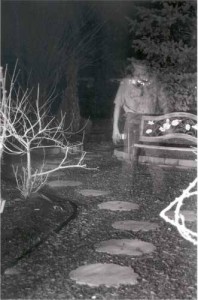 Stopping abruptly at the recollection, I exclaimed to Evie my certainty that the old guy was a ghost! She felt it far more likely that he had simply rappelled forty feet up or down a precipitous cliff. That made more sense. For whatever reason, she seemed entirely unwilling to consider the idea that the old man wasn’t real—as we understand reality, anyway. It seemed to me that the realm of the supernatural would have been right up her alley. But she never wanted any part of it and that instance was no different. We made our way back to her house without saying another word.
Stopping abruptly at the recollection, I exclaimed to Evie my certainty that the old guy was a ghost! She felt it far more likely that he had simply rappelled forty feet up or down a precipitous cliff. That made more sense. For whatever reason, she seemed entirely unwilling to consider the idea that the old man wasn’t real—as we understand reality, anyway. It seemed to me that the realm of the supernatural would have been right up her alley. But she never wanted any part of it and that instance was no different. We made our way back to her house without saying another word.
In that final month before returning to school I made a couple of pilgrimages to Monmouth to convene with Fred and Varney at the hacienda, and to visit Jilly—who had stayed in town in an attempt to sort out her relationship issues (to which I was contributing). She had just moved from the house in the alley she had been sharing with Karen and Julie over to a place on Monmouth Avenue, on the other side of Main Street from the college.
Truth be told, her “place” consisted of a mammoth room on the second story of a big, old, pastel green house that had been a boarding house, most likely since its construction in 1883 by the Whitman family. Five young women shared the house. All of the bedrooms were upstairs, four on Jilly’s floor and one more in the spacious third story attic. They shared the kitchen, the cavernous living and dining rooms and several anterooms on the first floor, as well as a full basement.
 Jilly’s room was decorated with the original eighty year-old wallpaper, white, aged-to-golden brown, extravagantly ornate with flowers and vines. It had begun to bubble up and peel in places, exposing vintage one-by-ten wallboard underneath. Since her landloard was planning on remodeling the premises at some point in the near future, Jilly was allowed to do what she pleased with the room. Her first order of business was to yank down all the wallpaper.
Jilly’s room was decorated with the original eighty year-old wallpaper, white, aged-to-golden brown, extravagantly ornate with flowers and vines. It had begun to bubble up and peel in places, exposing vintage one-by-ten wallboard underneath. Since her landloard was planning on remodeling the premises at some point in the near future, Jilly was allowed to do what she pleased with the room. Her first order of business was to yank down all the wallpaper.
I turned up at Jilly’s one day to find her atop a stepladder carefully scribing a line with an Exacto knife along the edge between the wall and ceiling in her room. She was almost finished with her task, a perfect scroll of stale wallpaper trailing behind her, curling to the floor. The walls were bare. While the old wood slats lent the room a rustic look, her intention was to adorn them with a new covering. For her purposes she selected burlap, because it was inexpensive and apparently fit the potato famine motif she had in mind. She had several rolls of the stuff, four feet wide, leaning in the corner.
It was high quality burlap with a very dense thread count. It’s not clear what was meant to be done with the stuff if not to cover walls. Probably not the best material for sheets. And burlap clothing went out as a fashion statement at the end of the Great Depression. But Jilly was nothing if not original. She was doubtless well ahead of the interior decoration trend arc of the day with the concept of burlap wall covering. And it was cheap!
Because of my greater height and assumed expertise with a hammer, the task of fastening the burlap along the top border fell to me. I began with the inside walls, carefully affixing the fabric with carpet tacks. We painstakingly doubled the material at all the seams, so the resultant covering looked surprisingly good. I know I was surprised.
It took us about four hours to get around to the final, long outside wall on the south side of the room. I had been hearing a subtle, low hum while doing the west wall that for quite a while I attributed to nearby construction. It remained steady, though hardly audible. Nothing seemed to come of it.
Until I began hammering in the uppermost corner where the west and south walls converged. The hum began to grow louder, and the pitch rose a minor third. I glanced at Jilly with a puzzled look on my face, as a couple of bees began to crawl through the cracks between the planks. Heartlessly, I smacked them with the tack hammer and went about my business. But the hum kept growing louder.
Suddenly the burlap I had just tacked down began to bubble and bulge with a certain fury that did not bode well for the completion of my undertaking. Bees began crawling out from the unattached portion of burlap, spilling from all of the gaps between the boards, crawling across the ceiling, and flooding onto the floor. A cloud of angry bees began to gather and some were coming after Jilly and me. We ran screaming from the room, slamming the door behind us. Jilly retrieved a towel from one of her new roommates, using it to block the space beneath the door.
We sat on the floor beside the entry to her room, bewildered and befuddled. The hum inside continued to grow in intensity. Cracking the door open slightly, we peered inside to see that a thick swarm had formed on the bare wall. They were terribly agitated—the wall swirling wildly, painted with angry living honey.
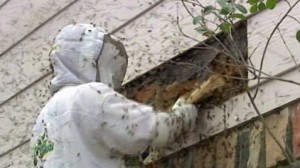 Seeing as neither of us were beekeepers, that was that for our workday. Jilly’s landlord was surprisingly understanding about the episode. Fortuitously he had a friend who happened to be an apiarist—who came over the next day and extricated the little bastards. No bees were harmed in the incident, but for those I squished with the hammer. Jilly had completed her project by the time I returned to Monmouth two weeks later to embark upon junior year. The walls looked very nice and her room smelled like a big stack of gunnysacks.
Seeing as neither of us were beekeepers, that was that for our workday. Jilly’s landlord was surprisingly understanding about the episode. Fortuitously he had a friend who happened to be an apiarist—who came over the next day and extricated the little bastards. No bees were harmed in the incident, but for those I squished with the hammer. Jilly had completed her project by the time I returned to Monmouth two weeks later to embark upon junior year. The walls looked very nice and her room smelled like a big stack of gunnysacks.
********************************************************************************************************************
The Bible XIII
Three angels came back
From Sodom and Gomorrah:
Gave a bad report.




